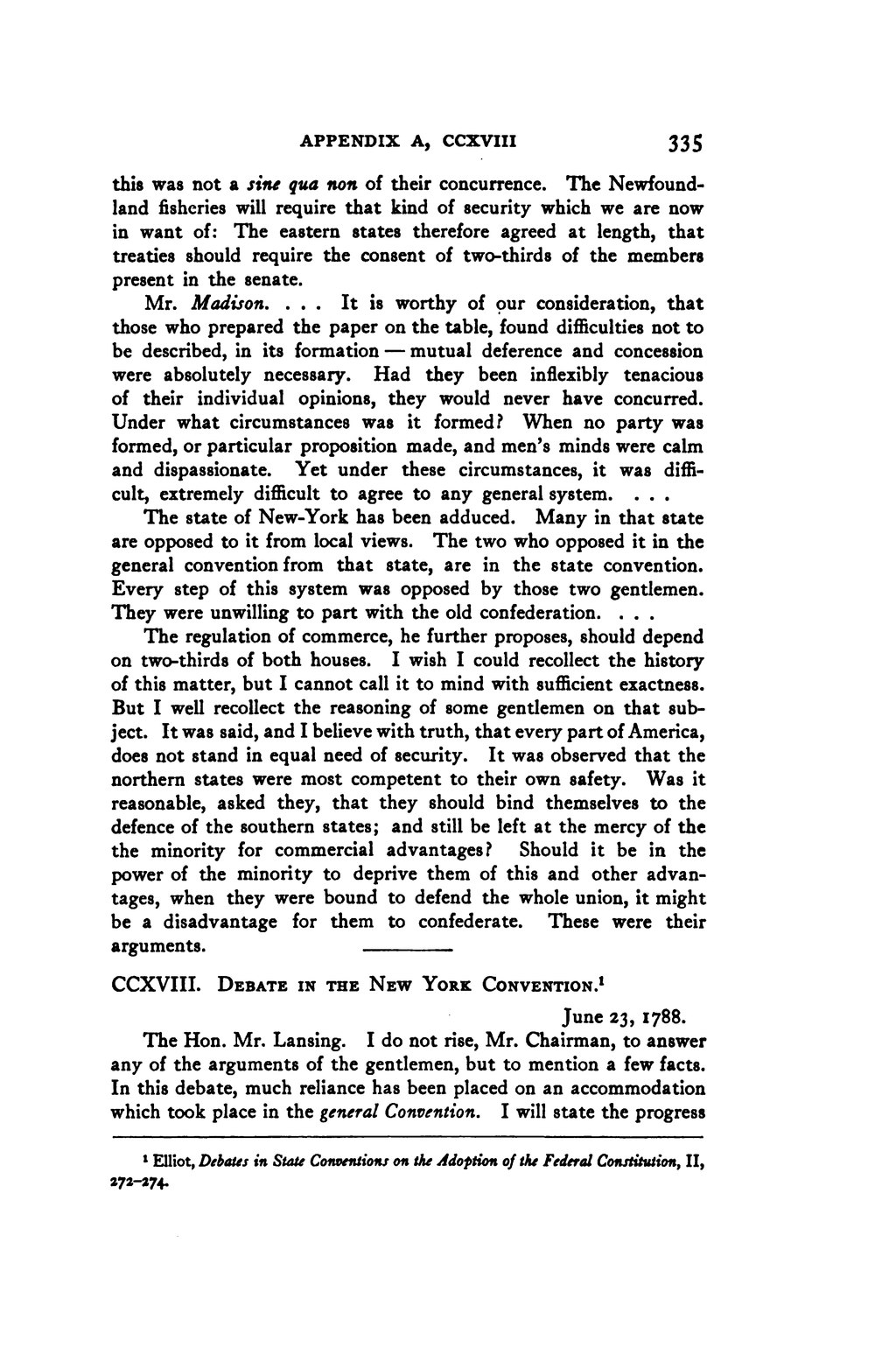this was not a sine qua non of their concurrence. The Newfoundland fisheries will require that kind of security which we are now in want of: The eastern states therefore agreed at length, that treaties should require the consent of two-thirds of the members present in the senate.
Mr. Madison. … It is worthy of our consideration, that those who prepared the paper on the table, found difficulties not to be described, in its formation—mutual deference and concession were absolutely necessary. Had they been inflexibly tenacious of their individual opinions, they would never have concurred. Under what circumstances was it formed? When no party was formed, or particular proposition made, and men’s minds were calm and dispassionate. Yet under these circumstances, it was difficult, extremely difficult to agree to any general system. …
The state of New-York has been adduced. Many in that state are opposed to it from local views. The two who opposed it in the general convention from that state, are in the state convention. Every step of this system was opposed by those two gentlemen. They were unwilling to part with the old confederation. …
The regulation of commerce, he further proposes, should depend on two-thirds of both houses. I wish I could recollect the history of this matter, but I cannot call it to mind with sufficient exactness. But I well recollect the reasoning of some gentlemen on that subject. It was said, and I believe with truth, that every part of America, does not stand in equal need of security. It was observed that the northern states were most competent to their own safety. Was it reasonable, asked they, that they should bind themselves to the defence of the southern states; and still be left at the mercy of the the minority for commercial advantages? Should it be in the power of the minority to deprive them of this and other advantages, when they were bound to defend the whole union, it might be a disadvantage for them to confederate. These were their arguments.
ⅭⅭⅩⅧ. Debate in the New York Convention.[1]
June 23, 1788.
The Hon. Mr. Lansing. I do not rise, Mr. Chairman, to answer any of the arguments of the gentlemen, but to mention a few facts. In this debate, much reliance has been placed on an accommodation which took place in the general Convention. I will state the progress
- ↑ Elliot, Debates in State Conventions on the Adoption of the Federal Constitution, Ⅱ, 272–274.
